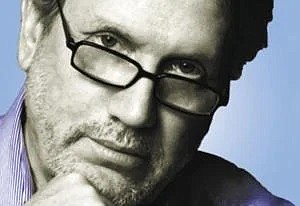January 29, 2025 at 7:30 a.m.
By Brian Howey
Earlier this month on Jan. 6, members of Congress of both political parties gathered at the U.S. Capitol to certify that Republican Donald J. Trump won the Electoral College 312-226. Presiding over this process was Vice President Kamala Harris, who lost last November.
“It was about what should be the norm and what the American people should be able to take for granted, which is that one of the most important pillars of our democracy is that there will be a peaceful transfer of power,” Vice President Harris told reporters. “Today, America’s democracy stood.”
Two weeks later, President Trump was sworn into office in the U.S. Capitol rotunda. Four years before, the U.S. Capitol was the biggest crime scene in America. Trump had lost the 2020 election, but egged on supporters to march on the Capitol, which became an insurrectionist melee.
I watched it ... we watched it … in real time. In horror. We watched this mob assault what would be counted as 140 police officers. And hours after taking the oath of office to uphold the U.S. Constitution and protect the nation from enemies "both foreign and domestic," President Trump pardoned more than 1,500 convicted insurrectionists.
According to the conservative website The Bulwark, more than 170 of these newly pardoned convicts had already “pleaded guilty to assaulting law enforcement,” and 69 had “pleaded guilty to assaulting law enforcement with a dangerous or deadly weapon.”
“These people have already served a long period of time, and I made a decision to give a pardon," President Trump said. "Murderers get no time. You take a look at some of these [district attorneys]. They go after political opponents, but they don’t go after people that shoot people in the street.”
Appearing on Sean Hannity's Fox News show Tuesday, Trump said, “Most of the people were absolutely innocent. But forgetting all about that, these people have served, horribly, a long time. It would be very, very cumbersome to go and look — you know how many people we’re talking about? 1,500 people,” Trump told Hannity.
When Trump said rioters had the right to protest, Hannity responded they didn’t have the right to “invade” the Capitol. Trump called the scenario "very minor incidents."
That President Trump pardoned violent insurrectionists should have surprised no one. He was up front about it since he kicked his campaign off in Waco, Texas, home of the federal government's Branch Davidian massacre. Trump promised "retribution." He called the convicted insurrectionists "hostages" despite convictions by a jury of peers, and vowed to release them.
It prompted the Fraternal Order of Police and the International Association of Chiefs of Police to react as "deeply discouraged."
In a joint statement, the two organizations said individuals convicted of killing or assaulting police officers “should serve their full sentences. Crimes against law enforcement are not just attacks on individuals or public safety — they are attacks on society and undermine the rule of law. Allowing those convicted of these crimes to be released early diminishes accountability and devalues the sacrifices made by courageous law enforcement officers and their families.
"When perpetrators of crimes, especially serious crimes, are not held fully accountable, it sends a dangerous message that the consequences for attacking law enforcement are not severe, potentially emboldening others to commit similar acts of violence,” the joint statement read.
Last September, the Fraternal Order of Police endorsed Trump for reelection.
In the days leading up to the inaugural, attorney general nominee Pam Bondi and Vice President-elect JD Vance had suggested Trump would not pardon violent insurrectionists. Bondi said at her Senate confirmation hearing last week, “Let me be very clear in speaking to you, I condemn any violence on a law enforcement officer in this country,” and added that if asked, she would advise the president to pardon on a “case-by-case” basis.
Vance said on “Fox News Sunday” on Jan. 12 that the pardon question is “very simple,” saying those who “protested peacefully” should be pardoned and “if you committed violence on that day, obviously, you shouldn’t be pardoned.”
Journalist Chris Cillizza observed, “Of all the things Donald Trump did on Monday, the most dangerous is his pardoning of the January 6 rioters. The day began with Joe Biden preemptively pardoning his family. It ends with Donald Trump pardoning people who committed documented acts of violence on January 6, 2021. A very bad day for presidential leadership. And the rule of law.”
After the attack, Ryan Nichols (a J6 Choir member convicted of assaulting police and sentenced to more than 60 months) posted in Facebook, "So, yes, I’m calling for violence! And I will be violent! Because I’ve been peaceful and my voice hasn’t been heard, I’ve been peaceful and my vote doesn’t count. So you’re f— right, I’m going to be violent now!"
Pamela Hemphill of Boise, Idaho, pled guilty to violent entry and disorderly conduct at the U.S. Capitol. “I don’t want to be a part of them trying to rewrite history. It was an insurrection that day,” Hemphill told The Washington Post. She rejected Trump's pardon, saying, "That would be an insult to our Capitol Police officers and the rule of law. I broke the law. I pleaded guilty because I was guilty.”
Not one member of Indiana's Republican congressional delegation, all of whom swore to protect the U.S. Constitution, criticized the pardons.
Brian A. Howey is senior writer and columnist for Howey Politics Indiana/State Affairs. Find Howey on X @hwypol. Please send comments to [email protected].

